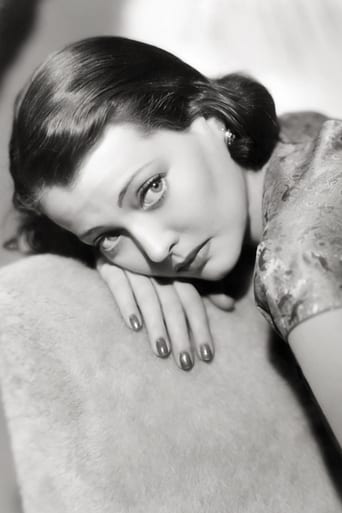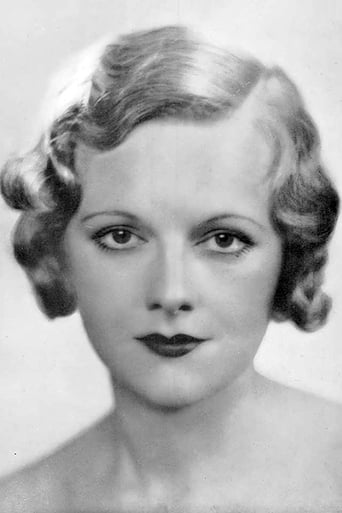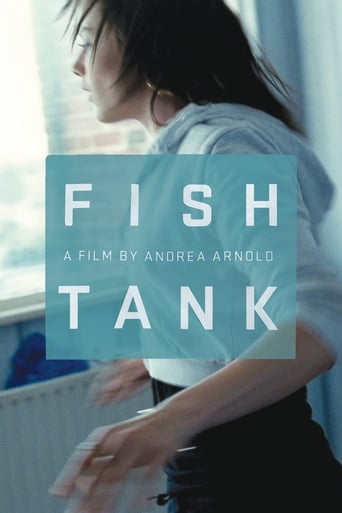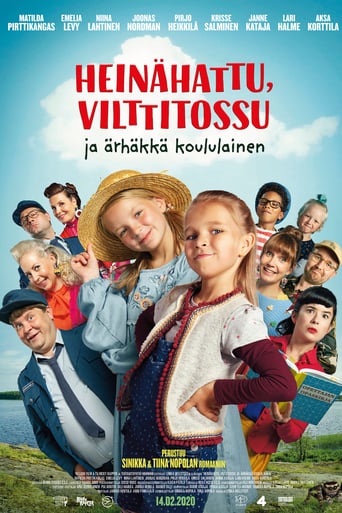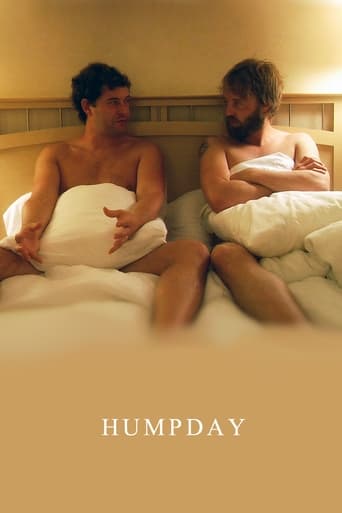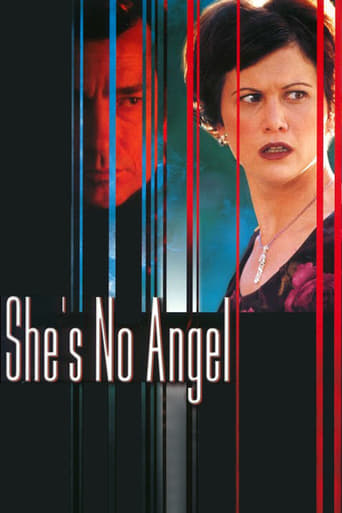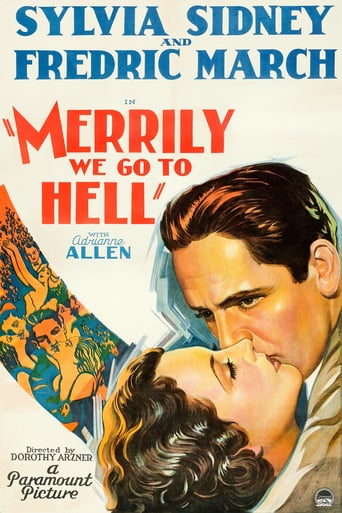
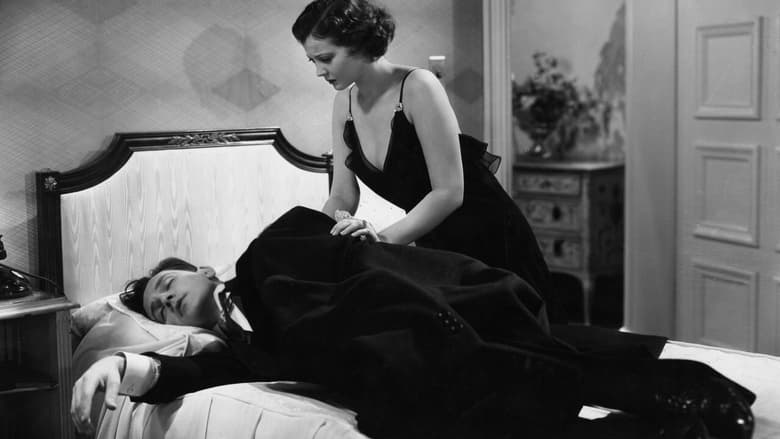
Merrily We Go to Hell (1932)
A drunken newspaperman, Jerry Corbett, is rescued from his alcoholic haze by an heiress, Joan Prentice, whose love sobers him up and encourages him to write a play, but he lapses back into dipsomania.
Watch Trailer
Cast


Similar titles
Reviews
Clever dialogue, fantastic acting, and several great scenes made this film a delight for me, but be forewarned, its main character may have you saying 'grrr', and reduce your enjoyment. Frederic March plays a newspaper reporter / playwright who has a drinking problem, and it's while he's drunk at a party that he meets a charming young lady, played by Sylvia Sidney. The two hit it off and despite the concerns of her rich father (George Irving), get married. Things get complicated when his ex-lover (Adrianne Allen) re-surfaces and he struggles to control his problem.It's a very strong cast all around, and Sidney in particular turns in a great performance. She ranges from a sweet, naïve, and trusting soul, loving unconditionally, to hurt and confused, to woman whose solution is to give her husband a taste of his own medicine, in a rather shocking development. The scene with her partying with her own young lover (Cary Grant no less) and his friends and quipping "Gentlemen, I give you the holy state of matrimony, modern style: single lives, twin beds and triple bromides in the morning" is sad, empowering, and a little thrilling all at the same time. As they're in a bar that's practically a den of iniquity, it's all clearly pre-code, but there is an intelligence and honesty in this scene, and throughout the movie.March is also strong as this affable but flawed man, and in early scenes we smile at his partying, at one point yelling "Is there a baritone in the house?" until he finds a barman to fill out a quartet with his friends so that they can break out in song. The warning signs are there in his tardiness and even at his wedding, as he and his best man (Skeets Gallagher) fumble for the ring, which he's forgotten. That scene is one of several that are well directed by Dorothy Arzner, as she cuts to guests making observations and the facial reactions of March and Sidney as they say their vows.There is a lot of partying and revelry which may put some viewers off, but I found that allowed for some fantastic moments. In one, March asks Sidney to shut the door and hold him back from going to the other woman, and in a strong way she opens it wide and says "I'm no jailer - get out!" In another, as March and Allen 'play-act' a passionate kiss to the merriment of others right in front of her, we feel the shock and humiliation amplified by her brilliant facial reaction. The title is clearly meant to titillate, but the film has real substance beneath. It's wild, but also realistic, though I didn't care too much for the ending. We see what destructive behavior leads to, and in that I suppose there is a message, but it's delivered without heavy-handed moralizing. The plot is a tad melodramatic, but it's daring and unique in the areas it explores. Well worth checking out, if you're in the mood for pre-code.
Frederick March and Sylvia Sidney star in "Merrily We Go to Hell," from 1932.For those of us who only remember Sylvia Sidney as an older character actress -- and usually a pretty mouthy one at that -- seeing her as an ingénue is always a revelation.Jerry Corbett (March) is a reporter and a drunk, still pining for the woman who broke his heart, Claire (Adrienne Allen). When he meets the lovely Joan Prentice (Sidney) from a wealthy family, the two fall for one another and marry.Jerry wants to write plays, and he eventually is able to have one produced, early in the marriage. Unfortunately, one of the stars is Claire, and she's perfectly willing to take up where they left off. Jerry starts drinking again. Joan is heartbroken as well as hurt and starts drinking and partying herself. Finally, though, she returns to her father's home.Nothing too surprising in the plot, but good performances all around. Sidney is pretty and vulnerable, taking a chance on a man her father disapproves of but whom she loves. March shows that Jerry is a weak man who in his heart doesn't believe he deserves the happiness he's had with Joan. Can these two find their way back to one another? Just guess.Dorothy Arzner had a good sense of pacing, so the film doesn't drag or slow down. Worth seeing for the actors, not necessarily the story.
This is a movie that has a lot to say about 'modern' relationships, drinking, and feminism of the time. And for the most part the execution is very good.Merrily We Go to Hell is an extremely well acted film, but that to me is not the highlight of the movie. It's the writing with realistic characters and funny moments that are the best part of it. It is one of the better performances I've seen from Sylvia Sidney, which is a little odd as its one of her earliest.Fredric March stars as a man who doesn't deserve the love of a rich girl that has fallen for him. He's frequently drunk (the title of the film is his favorite drinking toast) and disappoints her at nearly every turn. It's hard to understand exactly what Joan (Sidney) likes about him so much. But that's the way love is sometimes. Joan takes the good with the bad and always seems to forgive the bad, no matter how appalling. Jerry (March) is still getting over his last relationship, attempting to drink it off.One moment in that part of the story was a highlight for me, where Jerry mentions his previous girlfriend. Joan asks if he has a picture of her, and he responds by saying he has one hidden away somewhere that he looks at once in a blue moon when he's feeling lonely. The movie immediately cuts to him arriving home and the picture of the girl he was mentioning is framed on the wall, with a personal note written to him on it. A clear omen for things to come.Merrily We Go to Hell does a fabulous job showing the dark side of drinking, something movies of the time rarely did. As the overall weakness of Jerry and Joan's relationship becomes unraveled, it takes Joan just a little longer than it seems like it should to finally get the courage to leave him. This is very much a sign of the times Depression-era picture. Showing the underlying unhappiness in the lives of socialites.If you are are a Carey Grant fan, he is essentially a pawn in the relationship game. As Jerry seems to be falling for his ex, the star of his new play, Joan attempts to give him a taste of his own medicine by going out with the other star of his play (Grant). Grant has maybe 4 or 5 lines.My only major criticism of the movie is the ending. I know it was a written rule in Hollywood at the time for movies to have a happy ending, but I don't consider the two of them getting back together a happy ending. Joan was right to leave him and she never should have taken him back. She was better off without him. Ending on the scene where she leaves would have been a better ending climatically, as well as been a happier ending. But in the time period that ending would not have been possible.
The title was immortalized by the British censor, who apparently insisted that the last word be replaced by a dash!!! People flocking to the movie for a bit of titilation would have felt pretty disappointed by this pap - although with Sylvia Sidney and Frederic March in the leads - it was high grade soap opera. Taken from Cleo Lucas' novel "I, Jerry, Take Thee Joan", even though it got Sylvia out of prison and into high society (she was constantly on Best Dressed Lists during the 30s), the plot made sure she suffered like never before.Joan (Sylvia Sidney) meets Jerry (Frederic March) at a New Year's Eve party. She is instantly taken with him and his eccentric humor. He is very drunk and teaches her his "theme song" "Merrily We Go to Hell", but when she says goodbye, he is too drunk to remember who she is. For her, it is love at first sight, but she puts up with a lot from him - even passing out drunk at their engagement party - her father is not amused.They marry and after an initial struggle, Jerry finally gets his play produced - with his old girlfriend Claire in the lead. Adrienne Allen is right up there with Sidney and March, she was just super as the neurotic wife in "The Night of June 13th" and she brings intelligence to this "other woman" role. Of course, after months on the wagon, Jerry falls back into his old drunken ways but the twist is, Joan follows him "Merrily to Hell". When she becomes ill through too much riotous living, she returns to her father, who protects her and refuses to let Jerry near her. The movie ends with a repentant Jerry, at the hospital, vowing, as Joan clings to life, to give up his old ways and telling Joan those three little words (I love you) that she has never heard him speak before. I tend to agree with the blurb on my DVD cover, who knows whether Jerry will stick to his pledge? During the movie, he had been "on the wagon" a couple of times and when Joan rashly starts to drink, he welcomes her as a drinking buddy - I would have thought that would have been his turning point - but no!!! Skeets Gallagher is always great to have around and he is just marvellous as Jerry's tap dancing drinking buddy. Florence Britton is beautiful and elegant as Joan's concerned friend.Recommended.


